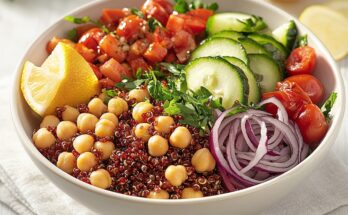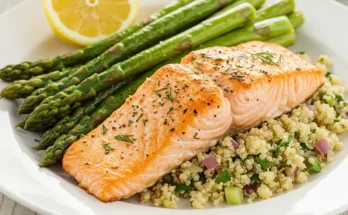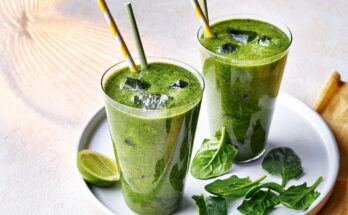When you’re managing insulin resistance, it’s easy to think carbohydrates should be completely off-limits. But the truth is, not all carbs are bad—and some are even essential. The key lies in choosing the right kind of carbohydrates: those that are high in fiber, low on the glycemic index, and rich in nutrients.
We spoke with registered dietitians to identify the top five carbs that support insulin sensitivity and help maintain stable blood sugar levels. These foods are not only delicious and versatile, but they also play an important role in a balanced, blood-sugar-friendly diet.
What Is Insulin Resistance?
Insulin resistance occurs when your cells stop responding properly to insulin—a hormone that helps glucose (sugar) enter cells from the bloodstream. As a result, your body produces more insulin to compensate, leading to elevated blood sugar levels. Left unchecked, insulin resistance can progress into type 2 diabetes and increase the risk of heart disease, stroke, and other chronic conditions.
Why Carbs Matter for Insulin Resistance
Carbohydrates are the body’s main source of energy, and cutting them out completely isn’t necessary—or healthy. Instead, prioritize complex carbs from whole foods that are rich in fiber and nutrients, which help slow digestion and regulate blood sugar. Here are the 5 best carbs recommended by dietitians for managing insulin resistance.
1. Barley
Barley is an underappreciated grain that packs a punch for blood sugar control. It’s rich in beta-glucan, a type of soluble fiber that slows sugar absorption and improves insulin sensitivity.
💬 “Barley contains beta-glucan, which has been shown to lower blood sugar and increase satiety,” says Melissa Azzaro, RDN.
Health Perks:
-
High in soluble fiber
-
Helps control appetite
-
Improves blood sugar response
Try it in: Bean & Barley Soup or grain bowls with roasted veggies
2. Quinoa
Quinoa is a fiber-rich seed often mistaken for a grain. It has a low glycemic index, digests slowly, and contains all nine essential amino acids. It’s also high in magnesium, a mineral important for insulin function.
Health Perks:
-
Low glycemic index
-
High in plant-based protein
-
Supports better glucose metabolism
Try it in: Cinnamon-Quinoa Breakfast Bowl or Quinoa Avocado Salad
3. Berries
Blueberries, raspberries, strawberries, and blackberries are rich in fiber and antioxidants like anthocyanins, which reduce inflammation and improve insulin response.
💬 “Berries are high in fiber and packed with nutrients—yes, they contain sugar, but it’s naturally occurring and balanced by fiber,” explains Vanessa Imus, M.S., RDN.
Health Perks:
-
Boost insulin sensitivity
-
Reduce oxidative stress
-
Naturally sweet without spiking blood sugar
Try it in: Smoothies, yogurt parfaits, or oatmeal
4. Beans
Beans are an affordable and filling carb source that’s also high in plant protein and fiber. Their slow-digesting starch helps prevent blood sugar spikes, and research shows daily bean consumption may reduce A1C levels, a key marker of blood sugar control.
💬 “Beans give your body the energy it needs from carbs without overloading it with sugar,” says dietitian Sarah Anzlovar, M.S., RDN.
Health Perks:
-
Regulate blood sugar
-
Improve satiety
-
Support gut and heart health
Try it in: No-Cook White Bean & Spinach Caprese Salad or lentil stews
5. Sweet Potatoes
Sweet potatoes are an excellent source of soluble fiber, especially when eaten with the skin. Their low glycemic index means they raise blood sugar slowly, making them ideal for insulin resistance.
Health Perks:
-
Low GI food
-
Packed with fiber and antioxidants
-
Helps reduce inflammation
Try it in: Sweet Potato & Cauliflower Rice Bowl or roasted with cinnamon
The Bottom Line
You don’t have to cut carbs to manage insulin resistance—you just have to choose the right ones. Whole foods like barley, quinoa, beans, berries, and sweet potatoes deliver slow-burning energy and essential nutrients that support metabolic health and stabilize blood sugar.
But remember: food is only one part of the equation. A well-rounded approach that includes exercise, sleep, hydration, stress management, and regular medical care is essential for reversing or managing insulin resistance.



